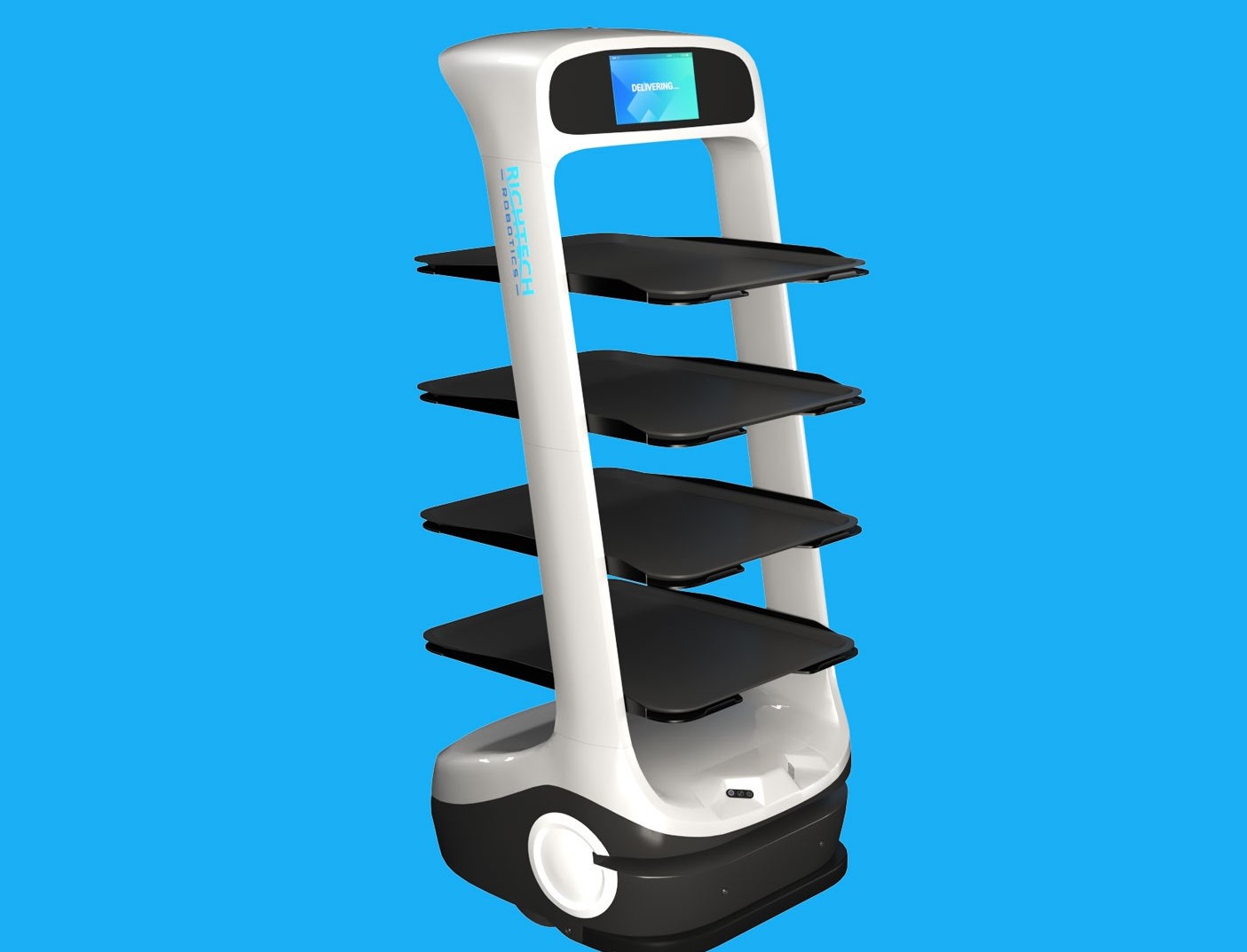June 1, 2021
-Wired
DURING A NORMAL April, the owners of the Island Grill would already have a stack of applications to wade through in preparation for the busy Jersey Shore summer. But as the pandemic has waned and business has returned, the applicants haven’t lined up. Here in Ocean City, there just aren’t enough hands to serve coconut shrimp, quesadillas, and clam chowder in a family-friendly setting.
So Allison Yoa, one of the grill’s owners, hired Peanut the robot, an autonomous machine that shuttles back and forth from the kitchen delivering food and bussing dirty dishes. It looks like a rolling bookshelf, with four trays, a touchscreen, and an upward-facing infrared camera that scans markings on the ceiling in order to navigate. Peanut uses lidar to detect and evade obstacles in its way. “If the object is immovable and she can’t go around, she will say, ‘Excuse me,’ and she does get a little testy,” Yoa says with a laugh. “Children love it. Most people that come in think it’s really cool.”
Peanut has unwittingly rolled into an unprecedented labor market. There have been plenty of anecdotal accounts of restaurant and bar owners, in particular, not being able to hire. (One McDonald’s offered iPhones to new employees who stayed for six months.) People may not be comfortable working in public spaces yet, or aren’t fully vaccinated, or are still trying to sort out childcare. “It’s not a job replacement,” Yoa stresses about turning to robotic help. “We people that own small businesses, we’re in trouble right now.”
As the Covid-19 lockdown solidified its grip on the world’s economies in March 2020, whole industries ground to a halt. Masses of people were suddenly jobless as businesses closed facilities, reduced staffs, or staggered shifts to prevent the spread of the virus. If robots steal so many jobs, I asked at the time, why weren’t they coming to the economic rescue, picking up the slack by supplying a workforce that couldn’t get sick?
The reality is that—no offense to Peanut—in the vast majority of cases, robots are still too dumb and clumsy to replace humans outright. “Robots are more like tools, a way to augment the efficiency of a person,” says Phil Zheng, chief operating officer at Richtech Robotics, which makes Peanut. (The robot’s officially called Matradee, a play on maître d’.) “So you increase the human’s ability to produce and do things, that’s really what it is. It’s more of a partner, a tool, like a laptop is a tool.”
Robots also lack the kind of intelligence, manual dexterity, and people skills that any good cook, host, or server relies on to keep their diners happy. Can Peanut talk down a customer who’s irate because their eggs were fried instead of scrambled? Can it deftly plate a tuna tartare and avocado tower, and do a nice little sauce flourish around the edges? Can a robot hold back a chef who’s about to rampage because someone called their creations low-grade dog food? No way.
Even employing a simple robot like Peanut requires a sort of negotiation between machine and human coworkers. Basically: Stay in your lane, robot. “They don’t come in and blend well with us,” says Julie Carpenter, a research fellow in the Ethics and Emerging Sciences Group at California Polytechnic State University. “We’re negotiating how to work around them—they’re not smart enough to work around us. They’re not cooperative. They’re not collaborative. They just follow orders.”
Because of this interpersonal awkwardness, you can make a strong case that there are some jobs that we just don’t want robots to take on. Part of a nurse’s job, for instance, is comforting patients and working seamlessly with other medical personnel, while a robot is devoid of such empathy and collaborative skill. A cop navigates an extremely sensitive emotional landscape—robots can’t even do simple security patrols without getting into trouble. In April, the New York Police Department canceled a program with Boston Dynamics’ robot dog Spot, following public concerns about the militarization of the police. Also known as the “Digidog,” it was intended for use in hostage and reconnaissance situations.




